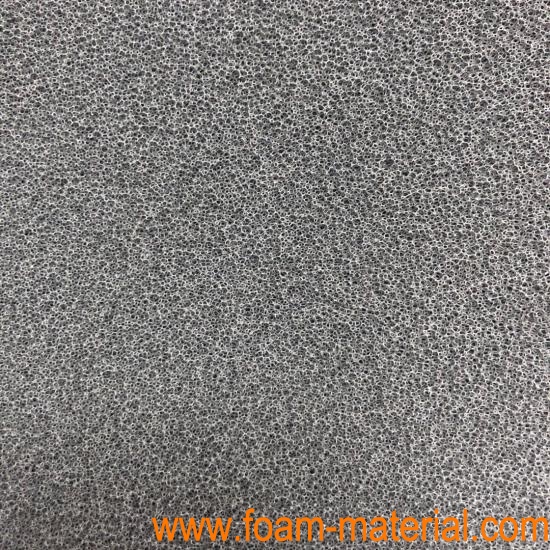Xiamen Zopin New Material Limited Established in 2011, it is a new material industry with capabilities of independent research & development, production and sales as one. Our ISO9001:2012 factory covers an area of 6 hectares and a building area of 28,000 square meters, with annual production of high-performance metal foams of 250,000 square meters. Our R&D team is composed of academicians and experts from Tsinghua University, Polytechnic University of Hong Kong, Nanyang Technological University, and other domestic and foreign metal foam professionals. After many years’ endeavor, we now own our proprietary intellectual property rights in manufacturing high purity and high porosity metal foams.
Nickel-Made Partition: A Comprehensive Guide
A nickel-made partition refers to a structural or functional barrier made from nickel or nickel alloys. These partitions are widely used in industries where high durability, corrosion resistance, and thermal stability are required. Below is an in-depth exploration of nickel-made partitions, including their design, applications, advantages, limitations, and future prospects.
●1. What Is a Nickel-Made Partition?
A nickel-made partition is a physical or functional barrier fabricated from nickel or nickel-based alloys. It can serve various purposes, such as:
Separating different environments (e.g., gas, liquid, or temperature zones).
Acting as a support structure.
Providing electrical or thermal insulation.
Nickel-made partitions are often designed to withstand harsh conditions, making them ideal for demanding industrial applications.
●2. Composition of Nickel-Made Partitions
A. Base Material
Nickel (Ni): Provides core properties like corrosion resistance, high strength, and thermal stability.
B. Alloying Elements
Small amounts of other metals may be added to enhance specific properties:
Chromium (Cr): Improves oxidation resistance.
Iron (Fe): Increases tensile strength.
Copper (Cu): Enhances electrical conductivity.
Molybdenum (Mo): Boosts resistance to pitting and crevice corrosion.
Common nickel alloys used for partitions include:
Hastelloy: Known for its excellent corrosion resistance in extreme environments.
Inconel: Offers high strength and thermal stability at elevated temperatures.
Monel: Combines corrosion resistance with good mechanical properties.
●3. Properties of Nickel-Made Partitions
| Property | Description |
|-------------------------------|-----------------------------------------------------------|
| Corrosion Resistance | Excellent in acidic, alkaline, and saline environments. |
| High-Temperature Stability| Maintains strength and integrity at elevated temperatures. |
| Mechanical Strength | Resistant to deformation under pressure or stress. |
| Thermal Conductivity | Moderate to high, suitable for heat exchange applications. |
| Electrical Conductivity | High, enabling efficient transfer of electricity. |
| Durability | Long service life in demanding industrial conditions. |
●4. Manufacturing Process
The production of nickel-made partitions involves several techniques:
A. Casting
Molten nickel alloy is poured into molds to create complex shapes.
Suitable for large-scale production.
B. Forging
Nickel alloy is shaped under high pressure to produce strong and durable partitions.
Ideal for critical load-bearing components.
C. Welding
Nickel alloy sheets or plates are joined together to form partitions.
Ensures seamless integration in larger structures.
D. Additive Manufacturing
3D printing technologies are used to fabricate intricate and customized partition designs.
Suitable for lightweight and complex geometries.
Nickel Metallic Foam
●5. Applications of Nickel-Made Partitions
A. Aerospace
Used in jet engines and aircraft structures to separate high-temperature zones.
Example: Partition walls in combustion chambers.
B. Chemical Industry
Acts as barriers in reactors and storage tanks to prevent contamination or mixing of chemicals.
Resistant to aggressive chemicals like acids and alkalis.
C. Oil and Gas
Separates oil, gas, and water streams in pipelines and processing equipment.
Withstands high pressures and corrosive environments.
D. Nuclear Power
Serves as radiation shielding and containment barriers in nuclear reactors.
Resistant to radiation and high temperatures.
E. Electronics
Used as electromagnetic interference (EMI) shields to protect sensitive electronic components.
High electrical conductivity ensures effective shielding.
F. Automotive
Functions as thermal barriers in exhaust systems and turbochargers.
Reduces heat transfer while maintaining structural integrity.
●6. Advantages of Nickel-Made Partitions
| Advantage | Description |
|-------------------------------|-----------------------------------------------------------|
| Corrosion Resistance | Performs well in harsh chemical environments. |
| High-Temperature Stability| Suitable for applications exceeding 600°C. |
| Mechanical Strength | Resists deformation under pressure or stress. |
| Customizability | Available in various shapes and sizes for tailored solutions. |
| Long Service Life | Durable and resistant to wear, extending operational life.|
---
●7. Limitations of Nickel-Made Partitions
| Limitation | Description |
|-------------------------------|-----------------------------------------------------------|
| Cost | Nickel is relatively expensive compared to other metals. |
| Weight | Heavier than lighter materials like aluminum or titanium. |
| Complex Fabrication | Requires specialized techniques for certain designs. |
| Environmental Concerns | Nickel dust and waste may pose health risks if not handled properly. |
●8. Key Manufacturers and Research Institutions
| Organization | Focus Areas |
|------------------------------|---------------------------------------------------------|
| ATI (Allegheny Technologies) | Advanced nickel alloys for aerospace and energy sectors. |
| VAC (Vacuumschmelze) | Specialty nickel products for electronics and catalysis. |
| Fraunhofer Institute | Research on functional materials and partition designs. |
●9. Future Trends in Nickel-Made Partitions
1. Advanced Materials:
Development of nanostructured partitions for enhanced performance in thermal and electrical applications.
2. Hybrid Structures:
Integration of nickel with other materials (e.g., ceramics or polymers) for improved properties.
3. Sustainability:
Focus on recyclable and environmentally friendly production methods.
4. Customization:
Use of additive manufacturing to create tailored partition designs for specific applications.
●10. Conclusion
Nickel-made partitions represent a robust and versatile solution for separating and protecting environments in demanding industries. Their combination of high corrosion resistance, thermal stability, and mechanical strength makes them indispensable in aerospace, chemical, nuclear, and automotive sectors. While challenges remain in terms of cost and fabrication complexity, ongoing research continues to enhance their performance and broaden their applicability.
If you're exploring nickel-made partitions for your project, consider factors such as material selection, fabrication techniques, and specific application requirements to achieve optimal results.
For further details or assistance in designing or implementing nickel-made partitions, feel free to ask!
